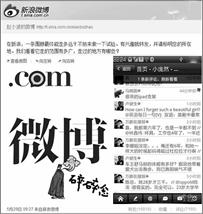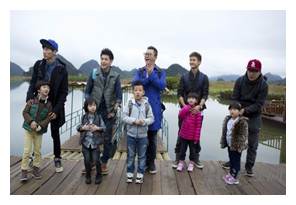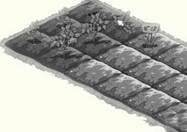题目内容
You may have known several kinds of police, traffic police, and street police. But have you ever heard of energy-saving (节能) policemen?
A group of 22 of these new policemen went to work last week in Beijing. They go around the city to see the use of energy in hotels, office buildings, shopping centers and other public places. One of their aims is to make sure that these places have set their air conditioning (空调) no cooler than 26 ℃.

"If everyone sets their air conditioning at 26 ℃, Beijing will save 400 million kilowatt-hours of electricity in one summer. That's one-third of all the usage of the city in the season," said a TV advertisement.
Other Chinese cities, like Wuhan in Hubei Province and Yangzhou in Jiangsu Province, are going to follow Beijing's steps in setting up a similar police team.
From 1986 to 2005, China met 20 warm winters. It means that Chinese cities have to spend billions of yuan solving the environmental problems every year.
To introduce a green life to the public, Beijing also held a show on energy-saving technology and productions last week. It attracted lots of attention.
"We want to tell people that there are certain ways to protect the environment. Each of us can find right ways to do it in our daily lives," said Liu Qianguang, an environmental engineer in Beijing.
小题1:The job of the energy-saving policemen is ___________.
小题2:Beijing will use ___________ million kilowatt-hours electricity in one summer.
小题3:Which of the following years' winters were all warm in China?
小题4:According to Liu Qianguang, ___________.
A group of 22 of these new policemen went to work last week in Beijing. They go around the city to see the use of energy in hotels, office buildings, shopping centers and other public places. One of their aims is to make sure that these places have set their air conditioning (空调) no cooler than 26 ℃.

"If everyone sets their air conditioning at 26 ℃, Beijing will save 400 million kilowatt-hours of electricity in one summer. That's one-third of all the usage of the city in the season," said a TV advertisement.
Other Chinese cities, like Wuhan in Hubei Province and Yangzhou in Jiangsu Province, are going to follow Beijing's steps in setting up a similar police team.
From 1986 to 2005, China met 20 warm winters. It means that Chinese cities have to spend billions of yuan solving the environmental problems every year.
To introduce a green life to the public, Beijing also held a show on energy-saving technology and productions last week. It attracted lots of attention.
"We want to tell people that there are certain ways to protect the environment. Each of us can find right ways to do it in our daily lives," said Liu Qianguang, an environmental engineer in Beijing.
小题1:The job of the energy-saving policemen is ___________.
| A.to set the air conditioning cooler |
| B.to check the use of energy in public places |
| C.to stop people using air conditioning |
| D.to make sure that more energy will be produced |
| A.1200 | B.800 | C.400 | D.133 |
| A.1984-1988. | B.1999-2003. | C.2002-2006. | D.2005-2009. |
| A.there are few ways to protect the environment |
| B.it's difficult to find good ways to save energy |
| C.it's easy for one to do something good for the environment |
| D.it's not easy for one to do something good for the environment |
小题1:B
小题2:A
小题3:B
小题4:C
试题分析:这篇文章讲述了新一类警察—节能警察。他们到城市的公共地方来检查能源的使用情况,主要是空调的使用不低于26度,这可以大大节约电能的使用。我们国家每年要花很多的钱用在环保上,每个人在日常生活中也能做到环保。
小题1:细节理解题。根据文中内容They go around the city to see the use of energy in hotels, office buildings, shopping centers and other public places.他们到城市各个地方的酒店,办公楼,购物中心和其他公共地方的去看能源使用情况;故选B。
小题2:判断推理题。根据文中内容Beijing will save 400 million kilowatt-hours of electricity in one summer. That's one-third of all the usage of the city in the season北京一个夏天可节约40亿千瓦时的用电,这是这个城市一个季度的三分之一,故得知北京夏季的用电为120亿千瓦时,故选A。
小题3:判断推理题。根据文中内容From 1986 to 2005, China met 20 warm winters.从1986年到2005年,中国度过了20个暖冬;故此题选B。
小题4:判断推理题。根据文中内容Each of us can find right ways to do it in our daily lives每个人在日常生活中都能找到正确的方式来保护环境;故选C,每个人都很容易为环境做点贡献。

练习册系列答案
 天天向上一本好卷系列答案
天天向上一本好卷系列答案 小学生10分钟应用题系列答案
小学生10分钟应用题系列答案
相关题目


